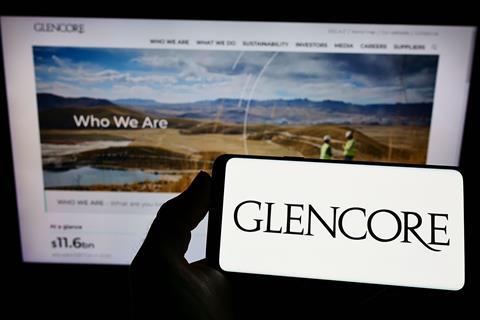The recent case of Aabar Holdings SARL v Glencore Plc [2024] EWHC 3046 (Comm) turned on its head the long-established shareholder rule, which is the principle that (in an exception to legal professional privilege) a company cannot claim privilege against one of its own shareholders except in relation to documents that were created for the purpose of hostile litigation between the company and that shareholder. The impact of this case is wide-reaching, particularly in the context of securities litigation, and potentially in relation to the wider concept of joint interest privilege. However, it is worth noting that (while the Supreme Court has refused permission for the ‘leapfrog’ appeal in this case), given the significance of this decision, it is unlikely that this is the last we will hear on this issue.


Privilege
Legal professional privilege is a doctrine that (when properly applied) can give certain documents and communications protection from being disclosed externally.
There are two main types of legal professional privilege under English law:
1. Litigation privilege, which applies to confidential communications between a client, their lawyer and third parties for the purpose of pursuing or defending actual or proposed litigation; and
2. Legal advice privilege, which applies to confidential communications between a client and lawyer, made for the dominant purpose of giving or receiving legal advice.
Shareholder rule
There are only narrow exceptions to legal professional privilege, one of which has historically (according to longstanding Court of Appeal and High Court authority) been the shareholder rule. The basis of this rule had originally been that the shareholder had a proprietary interest in the company’s assets and therefore in legal advice that was obtained using company funds, so that the position of shareholders is equivalent to that of trust beneficiaries in relation to legal advice obtained for the benefit of the trust. It was clear that the shareholder rule is not (or can no longer be) founded on that principle (a point which was accepted by Aabar in this case). More recently (or so Aabar argued) the basis of the shareholder principle has shifted to the idea that it is an emanation from the concept of joint interest privilege, which arises when two parties have a joint interest in the subject matter of the advice at the time it came into existence for their mutual benefit. The court considered this critical question.
Increasingly, however, doubt has been cast regarding the basis of this principle. In Various Claimants v G4S [2023] EWHC 2863 (Ch) for example, while Mr Justice Green accepted the existence of the shareholder rule, he also stated that it was ‘difficult to discern how the principle arose’. However, he considered that only a higher court could determine that it ‘does not exist or should be got rid of’ and that it would be ‘churlish’ of him to suggest that the numerous preceding cases recognising it were all misplaced.
Findings in Aabar Holdings
In Aabar Holdings, Mr Justice Picken disagreed with Mr Justice Green, finding that the shareholder rule is unjustifiable and should no longer be applied.
Aabar Holdings is a case involving claims under sections 90 and 90A of the Financial Services and Markets Act 2000 against Glencore Plc and some of its former directors. A dispute arose in the run-up to the first case management conference in the claim regarding whether Glencore could assert privilege against the claimants, or whether the shareholder rule prevented this.
The court looked at the following issues:
1. Does the shareholder rule exist in English law?
2. If so, does the shareholder rule apply to each of (i) legal advice privilege; (ii) litigation privilege; and (iii) without prejudice privilege?
3. Does the shareholder rule extend to indirect shareholders, former shareholders, and successors to the shareholder rights in a company?
4. Does the shareholder rule extend to privileged documents belonging to subsidiary companies?
In answer to issue (1), Picken J decided that the shareholder rule does not exist in English law, so that it does not prevent companies from asserting privilege against their shareholders. While he considered that the rule was historically justified on the basis that the shareholders had a proprietary interest in the company’s assets, this proprietary interest basis could not stand following the House of Lords decision in Salomon v A Salomon & Co Ltd [1897] AC 22 which established that (in contrast to a trust) a company has a separate legal personality. The claimant shareholders’ argument in Aabar Holdings that the shareholder rule could be justified as an emanation of joint interest privilege was rejected.
Picken J then went on to find obiter that, alternatively, if the rule did exist, its application depended on whether there was a genuine joint interest between company and shareholder on the specific facts of the case, and that the joint interest principle did not give a shareholder an absolute right to access any company legal advice.
As to issue (2), Picken J went on to find (obiter) that (if it existed) the shareholder rule would only apply to legal advice and litigation privilege, and not to without prejudice correspondence. Indeed, detailed reasoning was provided by Picken J for this conclusion.
On issue (3), again obiter, Picken J found that the shareholder rule could in principle extend to indirect shareholders because shares are often held on an intermediate basis and that therefore beneficial ownership of shares was relevant to determining whether there was a sufficient joint interest to justify joint interest privilege. Likewise, the rule could apply to former and successor shareholders, because the question of a sufficient joint interest was to be assessed at the time the relevant communication was made.
Turning to issue (4), again obiter, Picken J found that, in principle, the rule could extend to subsidiaries from the same group. Picken J decided that where there was a chain of holding companies that shared the requisite joint interest in a communication, the ultimate subsidiary company should not be able to assert privilege against any of them including the ultimate holding company.

Impact
Overall, this decision reinforces the principle that companies have a separate legal personality and can protect privileged communications from disclosure to shareholders. This could lead to more robust protections for corporate communications and potentially reduce the risk of sensitive information being exposed during shareholder disputes.
Securities litigation
Picken J’s decision means that potential shareholder claimants will no longer be able to use the shareholder rule to obtain access to privileged advice. This will have a major impact on securities litigation, which is often commenced as group litigation (the UK equivalent of class actions), arising out of the purchase and sale of shares in publicly listed companies. As we see a trend of increasing shareholder activism, Aabar Holdings is a positive move for companies. However, given that this was a High Court decision and the shareholder rule is still likely to be the subject of debate, companies should proceed cautiously and should not assume that Aabar Holdings means that legal advice to the company will definitely be protected from future disclosure to shareholders.
Joint interest privilege
Picken J found that joint interest privilege as a freestanding species of privilege was not supported by the authorities, increasing uncertainty around the existence and application of joint interest privilege more widely.
Further developments
Aabar was granted a leapfrog certificate to apply for permission to appeal directly to the Supreme Court, but the Supreme Court then refused permission. However, this issue was heard by the Privy Council on 6 March 2025 (and is awaiting judgment) in an appeal of the Bermudian Court of Appeal’s decision inOasis Investments II Master Fund Ltd v Jardine Strategic Holdings [2024] CA (Bda) 7 Civ, which should also consider the existence (and if so scope) of the shareholder rule.
Avneet Baryan is president of the Junior London Solicitors Litigation Association, and a senior associate at Mills & Reeve. Alexandra Illingworth is an associate at Mills & Reeve, London































No comments yet